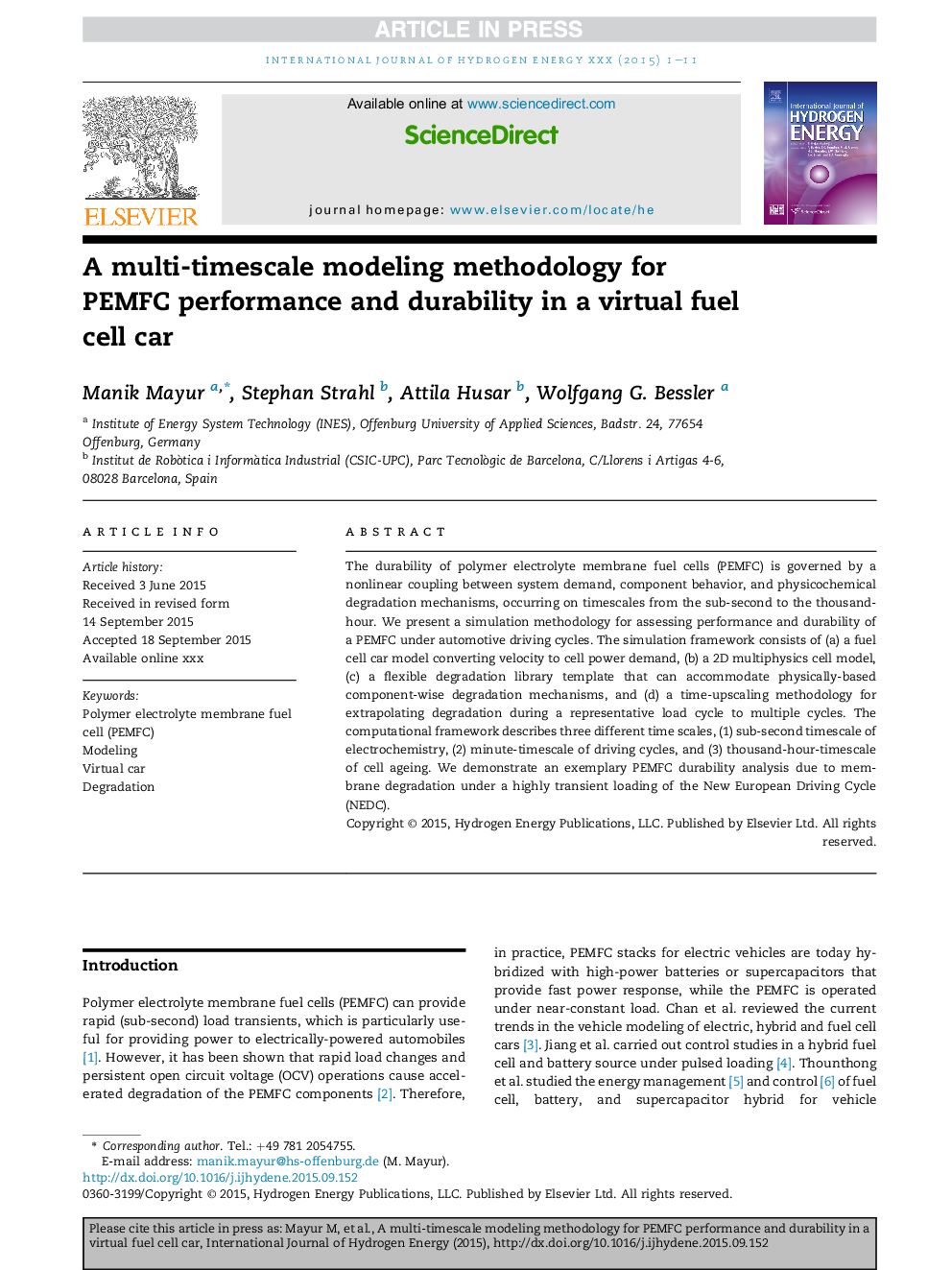| Article ID | Journal | Published Year | Pages | File Type |
|---|---|---|---|---|
| 7713527 | International Journal of Hydrogen Energy | 2015 | 11 Pages |
Abstract
The durability of polymer electrolyte membrane fuel cells (PEMFC) is governed by a nonlinear coupling between system demand, component behavior, and physicochemical degradation mechanisms, occurring on timescales from the sub-second to the thousand-hour. We present a simulation methodology for assessing performance and durability of a PEMFC under automotive driving cycles. The simulation framework consists of (a) a fuel cell car model converting velocity to cell power demand, (b) a 2D multiphysics cell model, (c) a flexible degradation library template that can accommodate physically-based component-wise degradation mechanisms, and (d) a time-upscaling methodology for extrapolating degradation during a representative load cycle to multiple cycles. The computational framework describes three different time scales, (1) sub-second timescale of electrochemistry, (2) minute-timescale of driving cycles, and (3) thousand-hour-timescale of cell ageing. We demonstrate an exemplary PEMFC durability analysis due to membrane degradation under a highly transient loading of the New European Driving Cycle (NEDC).
Related Topics
Physical Sciences and Engineering
Chemistry
Electrochemistry
Authors
Manik Mayur, Stephan Strahl, Attila Husar, Wolfgang G. Bessler,
